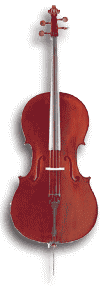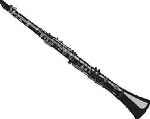




Antonin Dvorak (1841-1904)
The classical music composer, Antonin Dvorak, is described in detail here; Dvorak's life and music, in classical midi music form, is here for you. Midi music of Dvorak, and Dvorak's life story...for you.
 The later 19th century brought an increasing consciousness of national identity to various ethnic groups
in Europe and elsewhere in the world. Dvorák, born in a Bohemian village, where his father was an
inn-keeper and butcher, followed Smetana as the leading exponent of Czech musical nationalism, firmly
within the classical traditions of Central Europe. His early musical training was followed by employment
for some years as a violist, for a time under Smetana, and then, with the positive encouragement of
Brahms, by a life primarily devoted to composition. Dvorák won recognition abroad and rather more
grudging acceptance in Vienna. Between 1892 and 1895 Dvorak spent some time in the United States of America as director of the
new National Conservatory, a period that brought compositions that combine American and Bohemian influence. At home again he
was much honoured, resisting invitations from Brahms to move to Vienna in favour of a simple life in his own country. He died in
1904, shortly after the first performances of his last opera, Armida.
The later 19th century brought an increasing consciousness of national identity to various ethnic groups
in Europe and elsewhere in the world. Dvorák, born in a Bohemian village, where his father was an
inn-keeper and butcher, followed Smetana as the leading exponent of Czech musical nationalism, firmly
within the classical traditions of Central Europe. His early musical training was followed by employment
for some years as a violist, for a time under Smetana, and then, with the positive encouragement of
Brahms, by a life primarily devoted to composition. Dvorák won recognition abroad and rather more
grudging acceptance in Vienna. Between 1892 and 1895 Dvorak spent some time in the United States of America as director of the
new National Conservatory, a period that brought compositions that combine American and Bohemian influence. At home again he
was much honoured, resisting invitations from Brahms to move to Vienna in favour of a simple life in his own country. He died in
1904, shortly after the first performances of his last opera, Armida.Dvorák wrote nine symphonies, of which the best known must be the Symphony No. 9, From the New World, written in 1893 and first performed in New York in the same year. This New World Symphony derived some inspiration from a Czech translation of Longfellow's poem Hiawatha. Works for solo instrument and orchestra by Dvorák include an important Cello Concerto, a Violin Concerto and a slightly less well known Piano Concerto. The Romance for solo violin and orchestra, and Silent Woods for cello and orchestra, make interesting and attractive additions to solo repertoire for both instruments.
Other orchestral works of Dvorak's include two sets of Slavonic Dances, arrangements of
works originally designed for piano duet, and three Slavonic Rhapsodies. Overtures
include My Home, In Nature's Realm, Othello, Hussite and Carnival.  To this one
may add the Scherzo capriccioso of 1883, a Polonaise, written four years before,
and the splendid Serenade for Strings of 1875. The Symphonic Variations meet the
challenge of an apparently intractable theme and the ten Legends were
orchestrated by Dvorak from his original piano duet version. To this may be
added the symphonic poems The Noonday Witch, The Golden Spinning-Wheel and
The Wild Dove, works that seem to explore new ground, with their narrative
content. Dvorak was truly one of the greatest composers who ever lived.
To this one
may add the Scherzo capriccioso of 1883, a Polonaise, written four years before,
and the splendid Serenade for Strings of 1875. The Symphonic Variations meet the
challenge of an apparently intractable theme and the ten Legends were
orchestrated by Dvorak from his original piano duet version. To this may be
added the symphonic poems The Noonday Witch, The Golden Spinning-Wheel and
The Wild Dove, works that seem to explore new ground, with their narrative
content. Dvorak was truly one of the greatest composers who ever lived.
 Quartet No.10 in Eb Op.51, Allegro ma non troppo Quartet No.10 in Eb Op.51, Allegro ma non troppo
|
 Slavonic Dance No.5 in A, Op.46 Slavonic Dance No.5 in A, Op.46 |
[Top of Page]
Copyright © 1998 by Mr. Maestro, All Rights Reserved.





